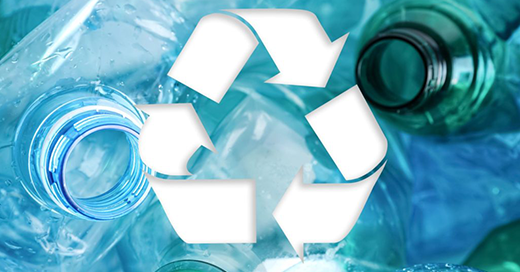
Recyclable Packaging: Great Britain Takes the Plunge in 2022
|
Sustainability
Posted By:
Thomas Corbino
UK 2022: A year of regulatory changes on packaging
In the coming weeks, two major regulations on packaging recycling and plastic packaging will be enacted in the United Kingdom: the UK Plastic Tax and Scotland's Deposit Return Scheme (DRS), to which other regulatory measures such as the Extended Producer Responsibility bill (EPR)--currently in its finalization phase–are expected to join in the coming months. This expansion of regulations will without doubt significantly affect producers, retailers, and consumers.
First off, the collection activities involving recyclable packaging will become centralized so that services throughout the region conform to national standards. Additionally, the current package labeling system–often criticized for its complexity–will be replaced by a binary system much easier to read by consumers, with recyclable packaging and non-recyclable packaging listed in separate columns (marked “Recycle” and “Do not recycle”).
Starting in April, plastic packaging containing less than 30% recycled plastic will be taxed at £200 per ton. This regulation portends stricter regulations to come in 2023, when producers, retailers, and e-commerce sites will have to pay all the costs of waste management regarding their packaging. This will include the price of collection, recycling and costs associated with landfill use.
The Extended Producer Responsibility bill is expected to cost UK businesses £2.7billion a year. Companies that do not comply with the new environmental regulations face serious cost increases, and these could potentially soar for smaller companies affected by them. (For now, however, only companies with a turnover of more than 2 million books are liable).
In France and Europe, a movement already at work
While the measures adopted in Britain may seem drastic, in reality they simply align with the extant regulations of many other European countries and the European Union. In France, the government enacted the National Pact on plastic packaging in 2019, which has already been signed-on to by almost all of France’s retailers. The legislation is in fact much more ambitious than the British program since it requires that 60% of all plastic packaging will be recycled by 2022 and that plastic packaging will be 100% "reusable, recyclable or compostable" by 2025.
Often referred to as a "plastic tax", EU member nations have focused on their respective "national contribution of non-recycled plastic packaging waste" since January 1, 2021. The tax is primarily intended to encourage recycling, as well as to finance the European Union's environmental programs which aim at achieving a recycling rate of at least 55% by 2025, 60% by 2030, and 65% by 2035. Forward-looking policy such as this explains an increase in recycling within the EU, where 41% of plastic waste (i.e., 14.1 kilograms per inhabitant) was already recycled in 2019.
The need for data to control the packaging production chain
But whether in Great Britain, France or the European Union, regulatory requirements directed toward recyclability goals must be implemented and controlled effectively and will require the ongoing collection and management of massive amounts of data from all players. Retailers, producers, and regulators must all begin to prepare today to be able to guarantee traceability and compliance of packaging going forward. These new requirements suggest nothing short of a revolution in how the sector will have to manage data in the months and years to come.
The revolution has already begun in the United Kingdom on a large scale, as companies will now be responsible for measuring and assessing compliance of their product packaging with the new recyclability standards. In order to succeed, a whole new system of data collection and processing must be rapidly established. Companies will need to evaluate their current situation and begin to anticipate various changes necessary to stay regulation-compliant.
Charlotte Le Coz is Product Marketing Manager at Trace One, a company specializing in collaboration between producers and retailers. Recently, in the pages of LSA Magazine, La Coz noted that “the issues are clear. We must respond to the 2025 goals set by current regulations by enacting our own changes immediately. By 2025, 100% of single-use plastic packaging must be recycled as required by the 3R Decree: Reduce – Reuse – Recycle. Data will be the foundation of our success, but it must be structured and reliable.”
For this reason, Trace One, like other players in the sector, develops software tools aimed at managing standardized data collection, “to help our customers make the most relevant decisions to improve their packaging”. According to Charlotte Le Coz, the Trace One dashboard makes it possible to take stock of the operational landscape and identify areas for improvement, as well as optimization strategies for the further recyclability of packaging. “We also integrate sales volume to direct activities toward appropriate solutions. So, it really is a global analysis,” she concluded.